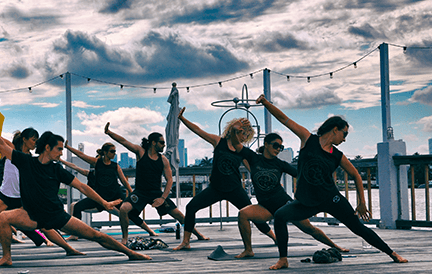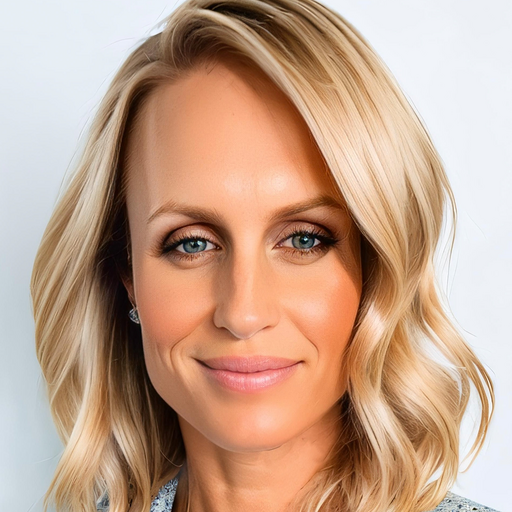What 5 Things You Must Know Before Hiring a Yoga Instructor For Your School or Box

As a certified yoga instructor, I’m incredibly pleased to see yoga used as a way for serious athletes to stay healthy, while training harder and longer than ever before. Because of this widespread realization, athletes are more and more appreciative of yoga’s therapeutic benefits as a complement to their primary method of training. So it’s no surprise that a recent Tabata Times article listed ten reasons why athletes should do yoga. The article noted the benefits include improved balance, range of motion and overall improved fitness on the list. Likewise, the focused mind-body connection inherent in martial arts is also central to yoga, so a weekly yoga class would likely be well received in your martial arts or MMA gym.
For these reasons, and a whole list of others, it’s highly likely at some point you’ll find yourself considering the addition of a yoga class to your martial arts class schedule or gym programming. When that time comes, here’s a list of five things you’ll want to know to ensure you bring on the right yoga instructor for your program.
Your instructor should be certified
This seems pretty obvious, but you need to ensure that your yoga instructor is certified. Certification is issued through individual teacher training programs, with all curriculum governed by the universal organization, the Yoga Alliance. Yoga instructors will have either a 200hr or 500hr certification, and sometimes they will also have the “RYT” designation after the level of training. This simply means the instructor paid a membership fee to register with the Yoga Alliance.
Your instructor should have his or her own liability insurance
Yoga instructors carry liability insurance to protect themselves from claims of injury by a student. All yoga teacher-training programs instruct their students to obtain such coverage, so you should have no trouble finding applicants who have it. Plus, by hiring a yoga instructor who carries his or her own insurance, you’ll be shielded from the financial loss of those potential nightmarish injury claims.Your instructor should be CPR certifiedWhile yoga at its best strengthens and stretches, students with balance challenges can fall, and those with undiagnosed heart conditions are at risk of a serious medical incident at any time. Yoga instructors know they should keep their certifications current, so just ask for a copy of their card.Your instructor should be able to teach the right style of yoga for your athletesSince there are countless styles of yoga, you’ll want to be sure you find an instructor to teach the style that best suits your martial arts gym or box. Styles of yoga I recommend to complement your programs include:
- Hatha Yoga: a foundational yoga that focuses on correct alignment in postures and breath control. This style of yoga is great for athletes of any age and physical ability.
- Vinyassa Yoga: a style of yoga that links poses in a flowing manner. This is a faster moving yoga that will slightly raise heart rates and feel like a flowing dance on the yoga mat. (Sometimes called Vinyassa Flow)
- Power Yoga: a style of yoga that builds on both Hatha and Vinyassa yoga, adding core strengthening exercises often seen in Pilates. This style of yoga builds heat and will elevate heart rates. Since it is more advanced than Hatha or Vinyassa yoga, it is more appropriate for conditioned athletes.
 Restorative or Yin Yoga: a style of yoga that uses longer holds for poses and only a few poses per class. This style of yoga is extremely beneficial for athletes on a rest day or those who need to combat stress or heal from an injury.
Restorative or Yin Yoga: a style of yoga that uses longer holds for poses and only a few poses per class. This style of yoga is extremely beneficial for athletes on a rest day or those who need to combat stress or heal from an injury.
- Budokon Yoga: is a relatively new style of yoga that actually blends yoga, meditation, and martial arts. With six belt levels, much like traditional martial arts, Budokon yoga would be an easy program to transition into your martial arts school or MMA gym.
Your instructor should be charismatic and extremely approachable
You want an instructor who will encourage participation, while representing your business and all you stand for. For these reasons, you absolutely want an instructor who is charismatic and approachable. Assuming you have a martial arts gym or box, yoga will be new to your program. Because of that, your students will likely feel a little intimidated unless they’ve taken yoga classes in the past. Your best bet for success is to bring in an instructor who’s warm, encouraging, and approachable.
This is an extremely personal recommendation, and it comes from my own experience as a yoga instructor. I’ve heard plenty of feedback from students in regards to my fellow instructors. Unequivocally, students are drawn to yoga instructors who are knowledgeable and personable. Conversely, instructors who lack personality and have a teaching style that discourages playfulness have the classes that attract fewer students.
Now that you know these five things, you’ll want to recruit and hire your instructor. A great way to go about doing that is to contact nearby yoga teacher training programs and ask to post a flyer to recruit recent graduates.
Good luck bringing a yoga class into your martial arts gym or affiliate gym. Your students will enjoy the added benefit, and you just might see healthier athletes as a result.
Do you know what it takes to run a successful affiliate gym? We’ve worked with thousands of affiliate gyms and have compiled some of the best advice we’ve heard from box owners around building a strong gym in a free eBook.

I’m Coach Kelli, a devoted CrossFit gym owner with 15 years of experience managing my facility, along with owning yoga studios and wellness centers. Beyond the fitness world, I have a passion for cooking, cherish moments with my children and family, and find joy in spending time outside. Having experienced the highs and lows, I’m dedicated to leveraging my expertise to help you grow and succeed on your fitness journey.

I’m Coach Kelli, a devoted CrossFit gym owner with 15 years of experience managing my facility, along with owning yoga studios and wellness centers. Beyond the fitness world, I have a passion for cooking, cherish moments with my children and family, and find joy in spending time outside. Having experienced the highs and lows, I’m dedicated to leveraging my expertise to help you grow and succeed on your fitness journey.







